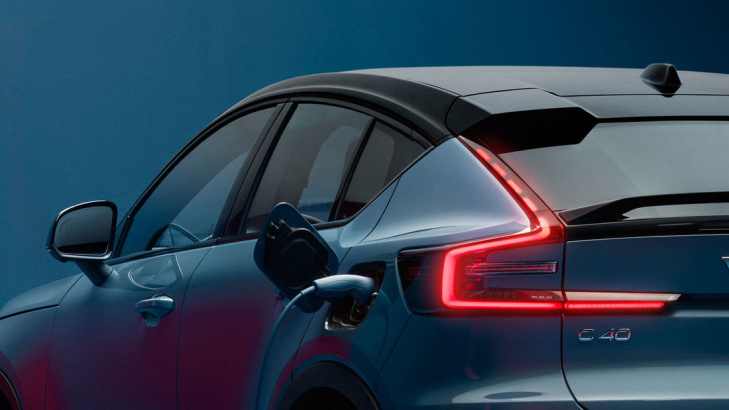VOLVO says electric car production pollutes more than thermal vehicles
- COCKPIT

- Nov 23, 2021
- 2 min read
In the midst of the debate on the choice of adopting the electric car for better environmental protection, Volvo Motors has just published a new study in which it states that the production of an electric battery emits a lot of Co2.
Volvo is therefore showing that the production of an electric car generates more CO2 emissions than the production of a vehicle with a combustion engine. To prove its point, the Swedish manufacturer has published a study on the full carbon footprint of the manufacture of its C40 Recharge, the brand's second electric car, to compare it with the production of an XC40 with a combustion engine.
The results show that the manufacture of a C40 Recharge generates 70% more CO2 emissions compared to the XC40. Note that both vehicles are built in the same Volvo plant, on the same assembly line, and even share a large number of components.
According to the automaker, it is the production of the electric battery that increases the amount of Co2 generated by the process. The battery, essential for the operation of the car, represents a third of the emissions recorded during manufacture. According to Volvo, an electric car enters the market having already polluted more than a combustion car. It is from the moment it walks the roads that it will generate less CO2 and will ultimately be more ecological than a thermal vehicle.
Volvo's study also takes charge of the entire life cycle of a vehicle. The life cycle of a car takes into account all the emissions generated between production and when the car reaches 200,000 km of road. For an electric car to catch up with the excess Co2 emitted during its design, it must imperatively drive more than 200,000 km before going through the recycling box.

To reduce the amount of Co2 involved in the production of electric batteries, Volvo recommends turning to clean energy from manufacturing. Thus, a C40 will have a CO2 footprint of around 27 tonnes during its life cycle if the electricity comes from clean sources. If not, a C40 Recharge can generate over 50 tonnes of Co2 in one cycle. “We need green electricity throughout the entire supply and production chain, not just in the use phase,” summarizes Jonas Otterheim, Climate Action Manager at Volvo.
Volvo is still at the forefront of ecological and safety concerns.







Comments